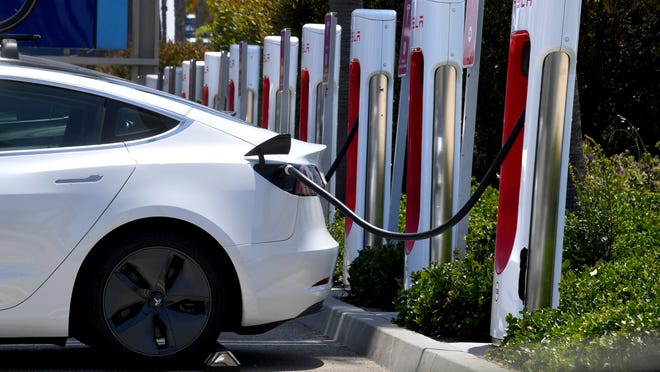California Leads Multistate Lawsuit Against Trump Administration Over Withheld Electric Vehicle Funds
California has filed a lawsuit against the Trump administration for withholding $5 billion in funds allocated for electric vehicle infrastructure. The lawsuit, which includes 16 other states, claims that the Trump administration’s actions will cost California over $300 million and hinder the growth of the electric vehicle industry.
Governor Gavin Newsom described the Trump administration’s decision as “Another Trump gift to China,” emphasizing California’s leadership in opposing the administration’s environmental policies. Since taking office in 2018, Newsom has led California in filing over 120 lawsuits against the Trump administration between 2017 and 2020.
The latest lawsuit marks the 19th filed by California against the current administration this year. It challenges the Federal Highway Administration’s decision to withhold funds allocated by Congress to expand electric vehicle charging infrastructure. California Attorney General Rob Bonta supported the lawsuit, stating that the Trump administration’s actions “roll back” environmental protections and “illegally strip away” funding for clean energy initiatives.
California is a national leader in zero-emission vehicle sales, with over 30% of new zero-emission vehicles sold in the U.S. registered in the state. The state has invested heavily in electric vehicle infrastructure, with over 178,000 public or shared private charging ports installed, alongside more than 700,000 at-home charging ports.

To encourage the adoption of electric vehicles, California offers various incentives, including grants and rebates through the Clean Cars 4 All program. The state has also committed significant funds to deploying zero-emission truck and bus recharging infrastructure and promoting public transportation projects that support zero-emission buses.
However, not all local leaders support the state’s push for electric vehicles. California Rep. Jay Obernolte has expressed concerns about the mandate to transition to electric vehicles, citing the higher cost of electricity in his district compared to neighboring states. He advocates for a balanced approach to energy production that considers the economic impact on working-class individuals.



